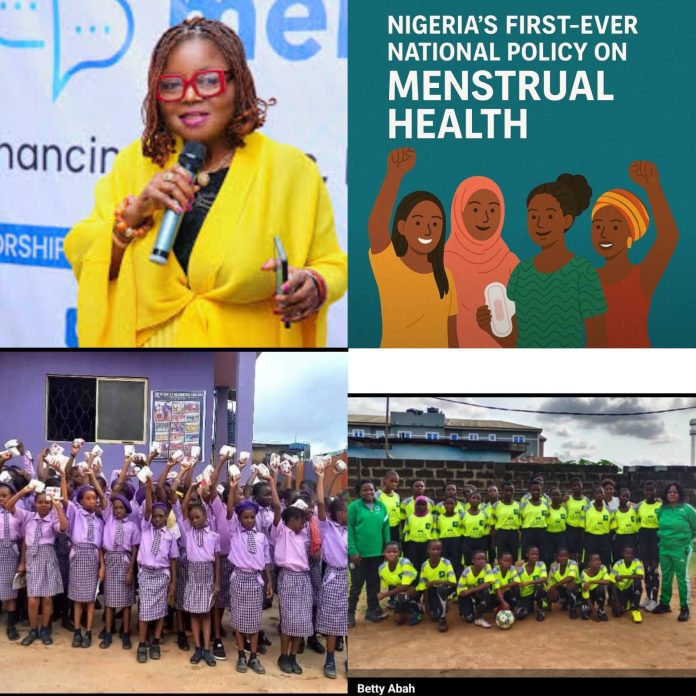The child rights advocacy non-profit, Centre for Children’s Health Education, Orientation and Protection, CEE-HOPE, has commended the Federal Government for adopting the National Menstrual Health and Hygiene Management, MHHM, Policy, describing it as a major breakthrough for the dignity and future of Nigerian girls and women.
The policy was officially launched on Friday in Abuja by the Minister of Women Affairs, Mrs. Imaan Sulaiman-Ibrahim, in partnership with state commissioners, development partners, and civil society actors.
In a statement signed by its Founder and Executive Director, Betty Abah, CEE-HOPE said the policy is “a bold step towards restoring dignity and opening wider opportunities for Nigerian women and girls who for years have been hindered by menstrual stigma, lack of safe products, and poor water and sanitation facilities.”
Abah explained that for too long, millions of schoolgirls across Nigeria have been forced to miss classes, face discrimination, or even drop out of school simply because of their periods. She noted that the new policy, if fully implemented, has the potential to tackle high rates of absenteeism, early marriage, and broken futures linked to poor menstrual health.
CEE-HOPE highlighted the benefits of the policy, which include access to affordable or free sanitary products for girls and women in vulnerable communities, integration of period education into classrooms and community awareness programmes, upgrading of toilets and hygiene facilities in schools, and building of strong partnerships across government, civil society, and private actors.
The statement also stressed the need for state governments to take ownership of the rollout by funding and integrating the policy into local systems. “Without strong state-level action, the impact will not be felt by the girls in rural and hard-to-reach areas who need it the most,” Abah warned.
She further called for reliable distribution systems to ensure sanitary supplies reach all corners of the country, as well as the active involvement of community, religious, and traditional leaders to help end silence and harmful myths around menstruation.
“Menstrual health must be seen as a national priority, not an afterthought. Every moment of delay means more girls missing school, more dreams cut short, and more futures denied,” Abah said.
CEE-HOPE urged government at all levels, development partners, and private actors to work together to ensure sustained investment, training of teachers and health workers, and proper monitoring of progress.
“With political will and inclusive action, Nigeria can achieve menstrual dignity for all women and girls by 2030,” Abah added.



